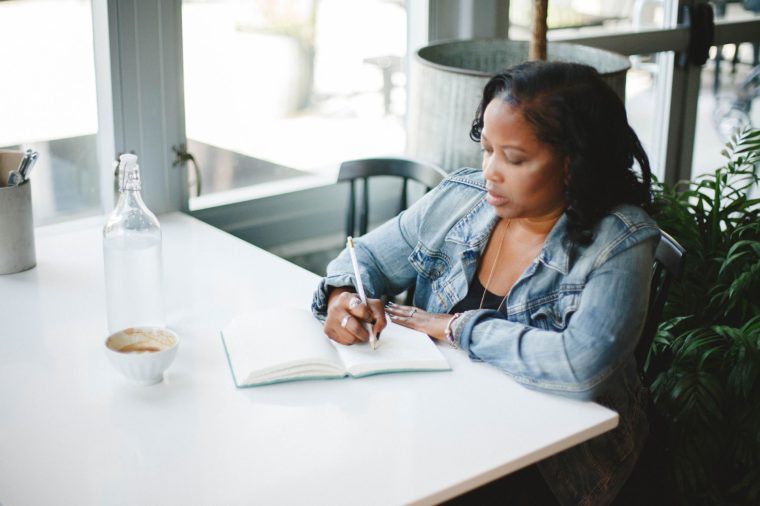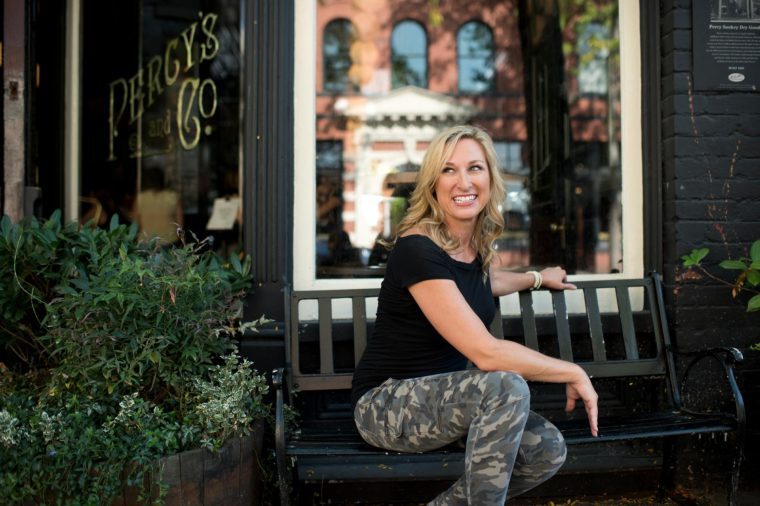![[feature]](https://blogger.googleusercontent.com/img/b/R29vZ2xl/AVvXsEhs2Ke3gVK8ybs9MVbnuzXXZJeVkMa_dLWq3I6cOo6nR5dzYliUCJS4htBK8I_nNOkXCzkvJQ91_kGEfXdWRr_Q_uUGKCAPNPqvTAVfWcgiPw8hepEWGug2KmOgGFCtFXXAGsPcodYcs9A/s1600/o-RECOVER-DISAPPOINTMENT-facebook.jpg)
So you messed up, maybe big-time—it happens. Here's how to come out of this experience a wiser, more compassionate person.
[post_ads_2]
Own your messiness
 |
Whether
we’ve hurt someone’s feelings, screwed up a work project, or
compromised our integrity, we can use our errors and flawed judgments as
opportunities to stop, reflect, and bounce back with a sense of greater
self-compassion, resilience, and understanding. After all, it’s not our
mistakes that define us; it’s how we choose to react to them.
Owning our messiness is the first step—and it can be a hard one, but
it's important after you “screw up” to simply acknowledge it. This means
taking responsibility for what you did (while simultaneously refusing
to blame or shame yourself, or beat yourself up over the “shoulds”) and
allowing yourself to feel all your feelings—whether it's minor
embarrassment or major regret. (Did you know that learning to embrace negative emotions can
actually make you happier over time?) Even when we try to get
everything “right,” this seldom works in our favor. Life is messy, and
so are we. Our best intentions can still lead us down roads we’d rather
not be on. Instead of wishing things were different, accept the moment
exactly as it is.
[post_ads_2]Tell the truth
 |
This
can mean having the hard conversation with yourself or someone else,
and facing up to your mistake. Instead of trying to cover up your
mistake with defensiveness or avoidance, be completely transparent about
what happened, why it happened, and how you feel about it. This is a
great opportunity to get other people to be honest with you and to
create possible solutions. Coming clean about your mistakes takes a
giant weight off your back, and it can also enhance other people’s trust
in you and your desire to do better next time. These are the magic phrases that make people trust you.
If you can, fix it
 |
If
there’s the possibility that you can make amends to people you hurt or
take the steps to repair your mistake, don’t hesitate—do it immediately!
Sometimes, we can use our guilt and shame as excuses to wallow in
feelings of futility or to think, “I never do anything right,” but this
is the perfect opportunity to get out of our own way. Remember, it’s
never too late to make a genuine attempt. The purpose isn’t to “get it
right,” but to simply alleviate whatever pain we’ve caused and do
whatever is in our power to resolve the matter at hand. Here's how to offer a genuine and sincere apology. Don't let this one word ruin it.
[post_ads_2]Reach out for support
 |
Many
of us think we can power through embarrassing or difficult moments on
our own, but these are the times when it’s good to connect with our
tribe of trusted friends. You are so much more than your mistakes, and
the people who care about you are always there to offer you that
important reminder. What’s more, our loved ones, who know us better than
anyone else, can let us know whether there are blind spots we are
unable to see from our limited perspective. We can trust them to tell it
like it is, while also cutting us some slack. These are the types of best friends every woman should have.
Learn from your mistakes
 |
It
goes without saying that mistakes are some of the best opportunities
for growth that we have. Sometimes, getting knocked down a rung or two
offers us the chance to reevaluate our approach and choose another path.
Just think about how the mistakes you’ve made in the past have helped
you to strengthen your character and abilities, and to improve yourself
in ways that might not have been possible if everything had been smooth
sailing. Let your questions—what led to my mistake? How can I do better?
What do I want to take away from this experience?—be your guide for the
lessons you are here to learn.
[post_ads_2]But don’t dwell on mistakes
 |
Instead
of wallowing in your mistakes or what you could have done differently,
focus your energy on the present. Given the fact that the human brain is
actually wired to dwell on negative emotions (it's a survival
instinct), it takes diligence and commitment to walk away from the
hamster wheel of our regrets. When you find your thoughts straying to
how awful it feels and why didn’t you do better, take a deep breath and
consciously choose to redirect your attention to something that’s
actually worthy of it.
Look at the big picture
 |
What
we lack in foresight, we can make up for in perspective. By evaluating
the bigger picture of a situation, we can avoid “shoulding” all over
ourselves or getting stuck in the land of “what if.” Sometimes what we
perceive as a mistake is the breakthrough that was necessary to change a
relationship or get out of a rut. Or maybe the thing we feel so
mortified about saying or doing isn’t really that big of a deal in the
long run. With just a little detachment and objectivity, we might see
that our so-called mistake doesn’t have the horrifying impact we
initially thought it did.
[post_ads_2]Embrace failure
 |
It’s
great to avoid making the same mistake twice, but just accept that even
if you dodge that bullet, you are definitely going to make other
mistakes in the future. And, most likely, lots of them. Look at this
failure as an opportunity to embrace your humanness. Our genius is often
the byproduct of our failures, and the paths that we end up taking by
accident can often contain the seeds for new endeavors. Failure is one
of our greatest teachers, and it can also offer us courage, humility,
and a gigantic capacity for creative problem-solving. This is the most productive way to handle any failure.
Forgive yourself
 |
Lots
of people learn from their mistakes, but this doesn’t mean they stop
being their harshest critics. The trick is to genuinely forgive yourself
by embracing your imperfections and understanding that you did the best
you could at that time, period. This isn’t about letting yourself off
the hook for bad behavior; it’s about taking full responsibility while
also honoring your humanness and offering yourself the same kind of
compassion you’d give to a loved one. Here's how to stop being so hard on yourself.
[post_ads_2]Celebrate your wins
 |
Studies
have shown that when we focus on our strengths, this positive
reinforcement works wonders in our lives. Instead of worrying about the
next mistake you might make, focus on all the things you’ve said or done
that have garnered awesome results. This will boost your confidence and
give you a whole lot of resilience—which will make bouncing back from
your mistakes that much easier.
More from Reader's Digest























